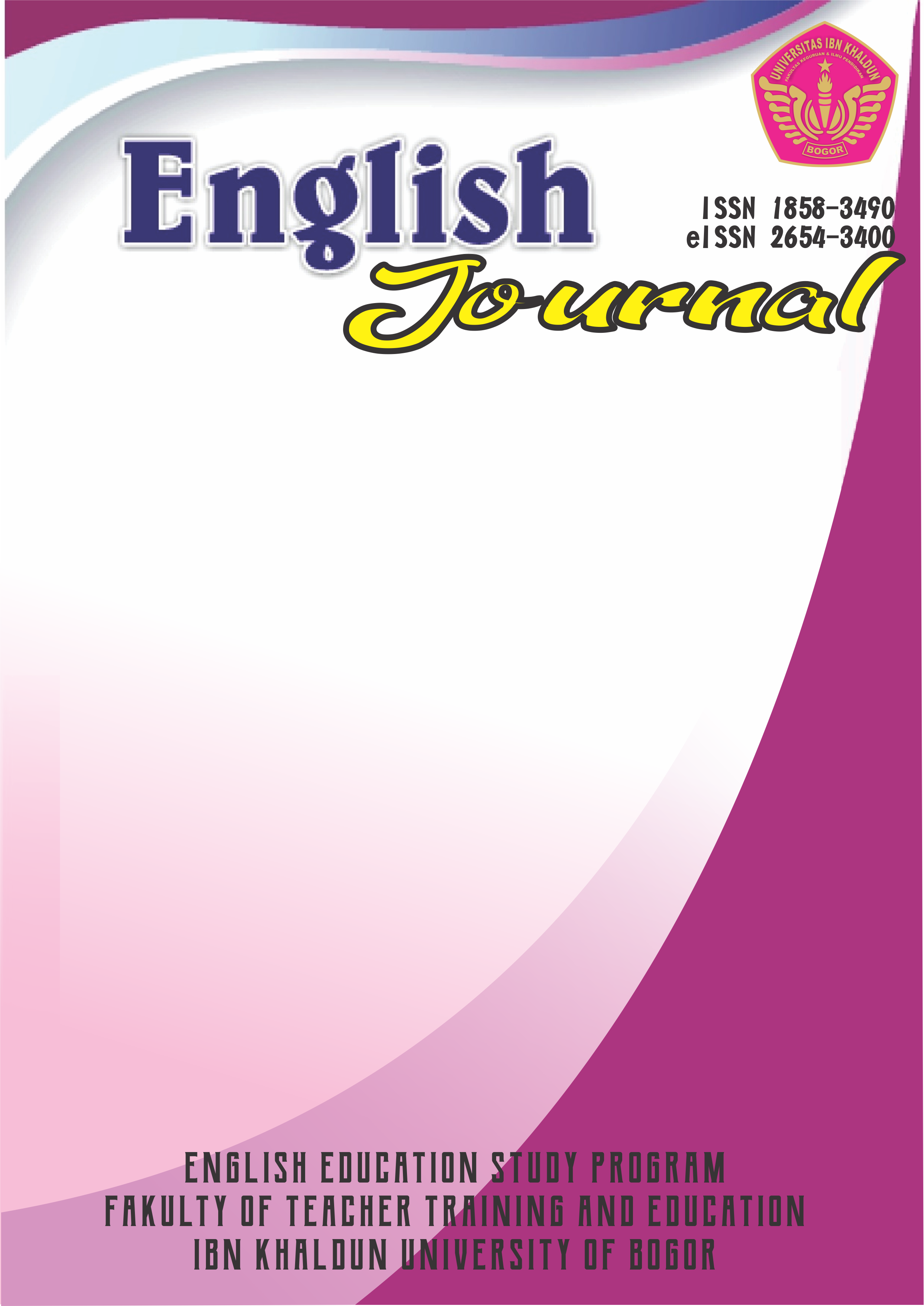THE EFFECT OF LEARNING MEDIA AND INTEREST IN LEARNING ON ENGLISH LEARNING OUTCOMES
DOI:
https://doi.org/10.32832/english.v13i2.3780Abstrak
This study aims to determine the Effect of Learning Media Influence and Interest in Learning Outcomes of English in Public Junior High School Students in Lebak Banten. Furthermore,the researcher to find out the effect of learning media interaction and learning interest on learning outcomes using the quantitative experiment method. This study used population of 583 students and sample of 70 students. The research hypotheses tested include: 1) There is a significant effect of learning media on learning outcomes. 2) There is a significant effect of interest in learning on learning outcomes. 3) There is a significant interactive influence on learning media and interest in learning about learning outcomes. Then from the results of the hypothesis test, it was found that 1) there is a significant effect of learning media on the learning outcomes of English students of Lebak region at Junior High School. This is evidenced by the acquisition of the Sig. = 0,000 <0,05 and F count = 16,334. 2) There is a significant effect of interest in learning on the learning outcomes of English students in Lebak region at Junior High School. This is evidenced by the acquisition of Sig. = 0,000 <0,05 and F count = 15,127. 3) There is a significant interaction effect of learning media and learning interest in the learning outcomes of English students of Lebak region Junior High School. This is evidenced by the acquisition of Sig. = 0,000 <0,05 and F count = 13,833.
Referensi
Ahmad Susanto.(2014) . Teori Belajar dan Pembelajaran di Sekolah Dasar, (Jakarta: Kencana Prenada Media Group)
Anni, Catharina, T.(2006). Psikologi belajar. Semarang: Universitas Negeri Semarang, Press.
Arikunto, Suharsimi. 2010. Prosedur Penelitian Suatu pendekatan Praktek. Jakarta: Rineka Cipta.
DePorter, Bobbi & Hernacki, Mike. 2006. Quantum Learning: Membiaasakan Belajar Nyaman & MEnyenangkan. Bandung: PT.Mizah Pustaka
Djali,D. (2008). Psikologi pendidikan . Jakarta : PT. Bumi Aksara
Djamarah, Bahri, S dan Zain S. (2004). Staretgi belajar mengajar. Jakarta : PT. Rineka Cipta.
Ef Epi (2015) EF English Proficienty Index.www.ef.com Education First ltd.all Right Reserved.
Gerlach, Vernon S. & Donald P. Ely.(1980). Teaching & Media: A Systematic approach. second edition, Englewood Cliffs, New Jersey: Prentice Hall, Inc.
Hamalik, Oemar .(2005). Perencanaan pengajaran berdasarkan pendekatan sistem. Jakarta: PT. Bumi aksara.
Miarso, Yusuf hadi. (2004) Menyemai Benih Teknologi Pendidikan, Jakarta: Kencana Prenada Media Group.
Sardini. (2013). Pengaruh minat belajar terhadap hasil belajar.(Skripsi). Universitas Tanjungpura, Pontianak.
Sudjana, N, dan Rivai A. (2005). Media pengajaran. Bandung: Sinar Baru Algensindo.
Sudjana, nana . (2009). Penilaian hasil proses belajar mengajar. Bandung: Remaja Rosdakarya,
Sugiyono. (2013). Metode penelitian pendidikan. Bandung: Alfabeta.
Suprijono, Agus. (2010). Cooperative learning, teori dan aplikasi PAIKEM. Surabaya:Pusaka belajar.
Sutikno, Sobari, M. (2007). Rahasia sukses belajar dan mendidik anak. Matraman NTP Press
Syah, Muhibbin. (2003). Psikologi belajar .Jakarta : PT. Raja Grafindo persada.
Usman, Moh.Uzer.(2002). Menjadi guru profesional . Bandung: PT. Remaja Rosdakarya
Undang Undang Republik Indonesia Nomor 20 Tahun 2003 Sistem Pendidikan Nasional. 2003.Lembaran Negara Repub;ik Indonesia Tahun 2003 No 4301.Jakarta.Di Akses Pada Tanggal 8 Juli 2019

















1.png)




